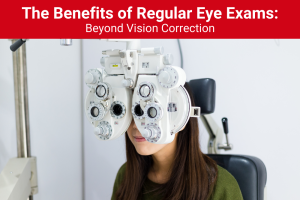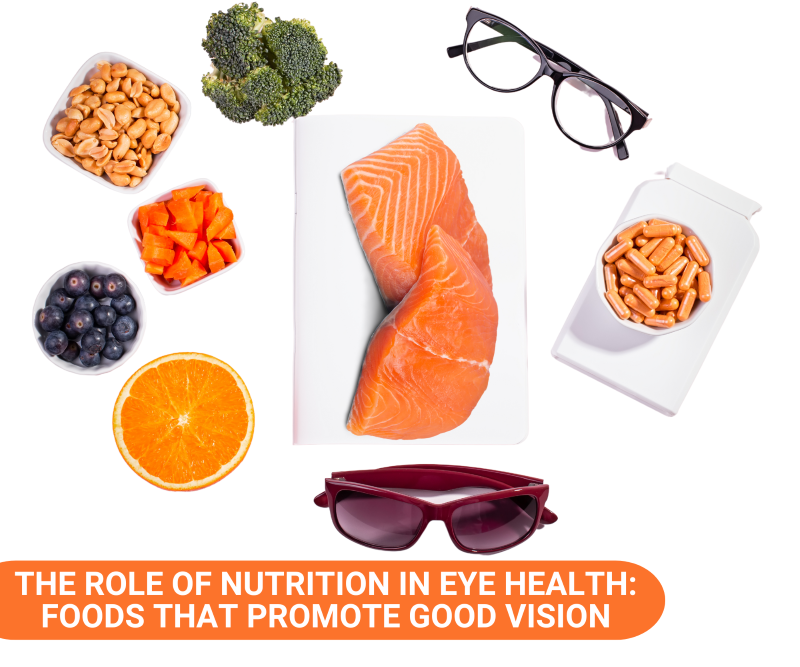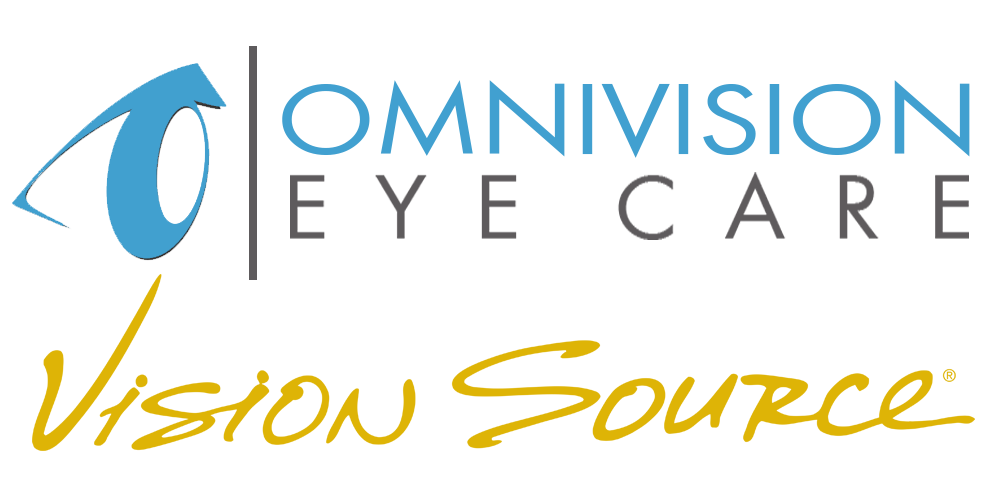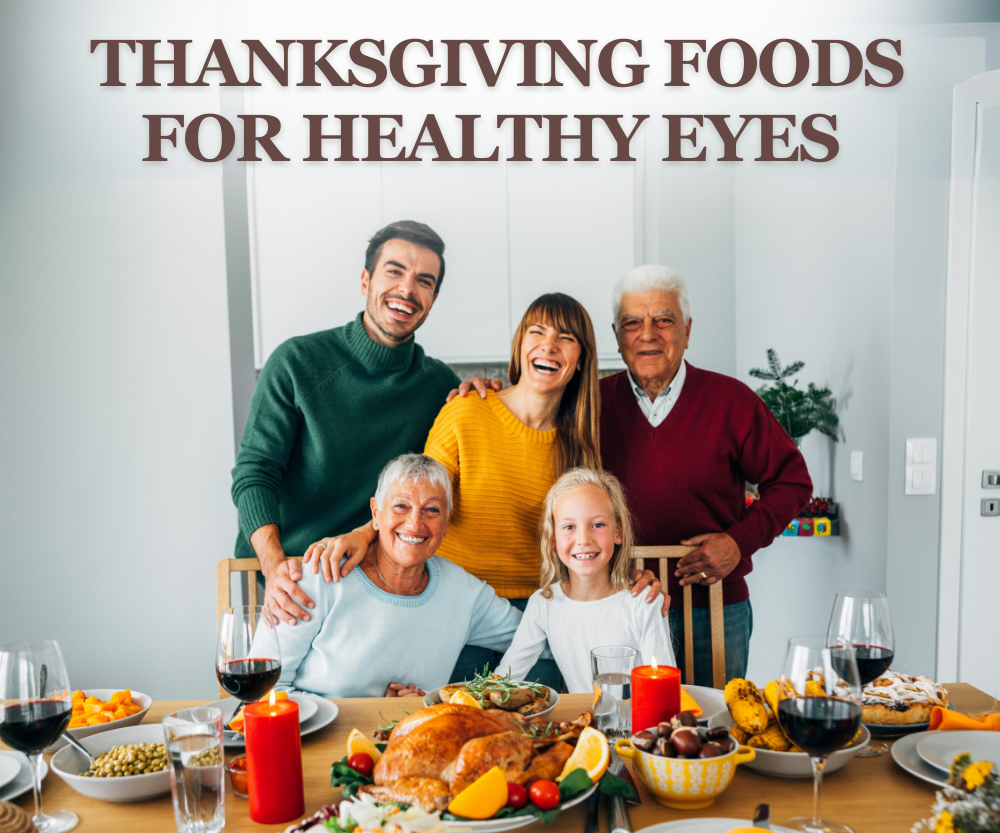Thanksgiving is a great time to share a traditional meal with family and to give thanks. This is a time where most people are probably not thinking about their eye health. That being said, many of the foods served in a traditional Thanksgiving feast actually promote good eye health. These staples are rich in nutrients that contribute to healthy arteries, which in turn supply the eyes with oxygen and other needed resources. You might want to think about incorporating some of the following Thanksgiving foods to your diet year-round for the sake of your eyes.
Thanksgiving Foods That Promote Eye Health
Sweet Potatoes
Beta-carotene is the pigment that helps to give sweet potato its coloration. It also helps promote night vision and better eye health. A one-cup serving of sweet potato provides twice the amount of beta-carotene that the average person consumes every day. Sweet potato is also an antioxidant, which helps to fight off infection. Just be sure that you don’t add too many marshmallows to your serving.
Pumpkin
A slice of pumpkin pie is good for your eyesight as well. A serving of mashed pumpkin provides 200 percent of the recommended daily intake of vitamin A, which aids in low-light vision. Like sweet potatoes, pumpkins are loaded with beta-carotene. The body converts beta-carotene into a form of vitamin A that provides protection for the health of your eyes.
Cranberry Sauce
Most families will include cranberry sauce during the Thanksgiving meal, but then they never consume it for the rest of the year. That’s unfortunate because cranberries are a “superfood” packed with vitamins and nutrients for overall health. Cranberry contains more antioxidants and vitamin C than almost all other fruits and vegetables. Consider adding cranberry to your diet all year long for the health benefits it provides.
Omega-3 Fats
Omega-3 fats are a “good” fat that countless studies have proven to be beneficial. For example, researchers at Harvard found that women who eat fish once a week, which is loaded with Omega-3 fats, were 42 percent less likely to develop age-related macular degeneration than women who only eat fish once per month. You don’t have to serve fish at Thanksgiving to get the benefit of Omega-3, however, because nuts and pumpkin seeds are another great source. Serve low-salt nuts and pumpkin seeds as a pre-meal snack for a boost to your eye health.
Green Beans
Green beans contain carotenoids, which are pigments made up of lutein and zeaxanthin. The human eye contains heavy concentrations of lutein and zeaxanthin. That green bean casserole that you serve at every Thanksgiving meal actually helps to reduce the chances of developing macular degeneration and cataracts. Scientists have recently discovered a third carotenoid called meso-zeaxanthin, which is only produced in the retina. Consuming green beans with zeaxanthin and similar foods, such as asparagus and Brussels sprouts, helps your eyes to produce meso-zeaxanthin.
It is clear to see that many of the staples that families already serve at Thanksgiving promote good eye health. Talk to our optometrists at OmniVision Eye Care for advice on additional foods that help contribute to the overall health of your eyes.
Recent Posts






